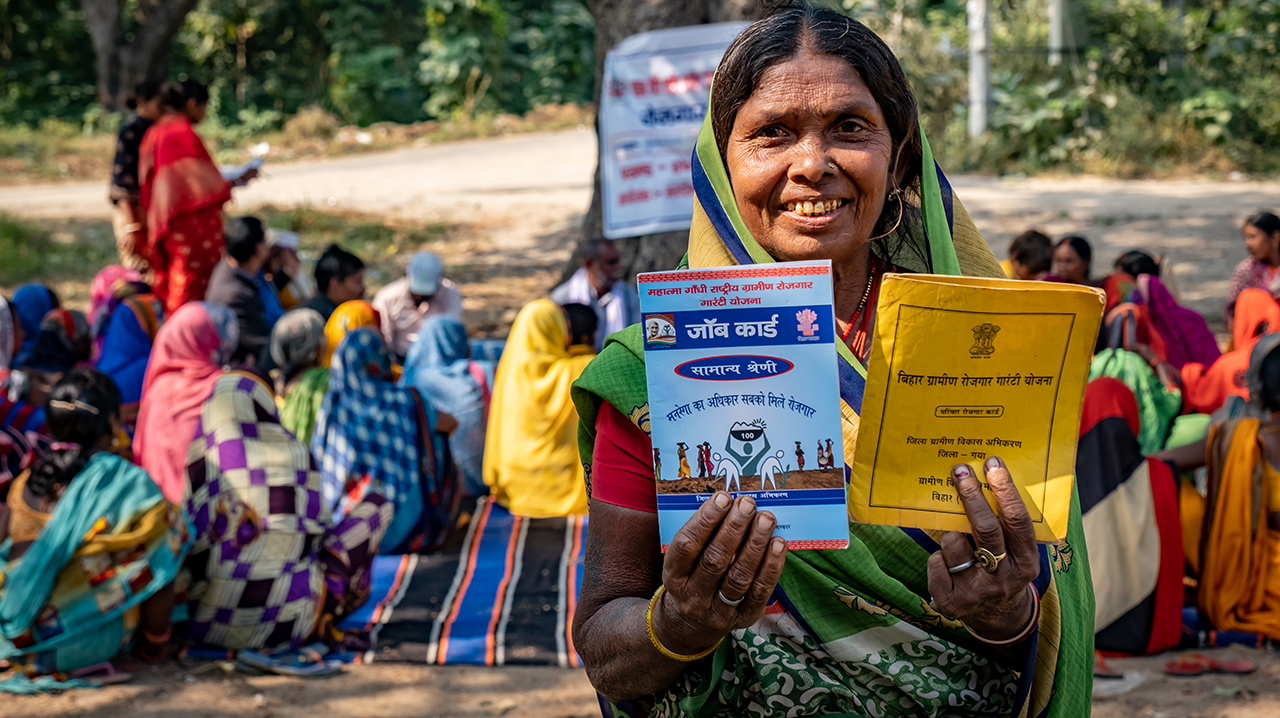Seeds of Change

Strengthening Platforms for Greater Women Participation and Empowerment
Project Concern International (PCI) India is providing Technical Assistance (TA) to Rural Development Department (RDD) to advance women’s economic empowerment through social and economic convergence in the state, supported by Bill and Melinda Gates Foundation (BMGF). The TA aims to improve women’s access to entitlements and facilitate safe and dignified avenues of economic empowerment as provided by the state, along with increasing women’s agency and power to make and act on decisions and control resources. The TA focuses on development through the convergence of the Mahatma Gandhi National Rural Employment Guarantee Scheme (MGNREGS) – Bihar Rural Livelihoods Promotion Society (JEEViKA).
Ground Realities
The Mahatma Gandhi Rural Employment Guarantee Act (MGNREGA) is a right-based legislation aiming to enhance livelihood security in rural areas by guaranteeing up to 100 days of employment every financial year to all rural households whose adult members desire unskilled manual work on public works projects. A provision in the Act mandates that MGNREGA Rozgar Diwas (Employment Guarantee Day) be observed at least once a month at panchayat level to raise awareness of the MGNREGA program and to discuss and address concerns pertaining to work, complaints, suggestions, and issues regarding the workplace. The TA field experience at project immersion administrative blocks, Jainagar in Madhubani, and Dobhi in Gaya, reflected that the rural workers’ awareness of MGNREGA entitlement is low, especially in obtaining work. Workers’ demands, when sought, are not met, especially during the lean agriculture season when agri-based employment goes low. This has challenged the effective ground-level implementation and livelihood coverage for the poor, where the program was needed most. Further, it was found that Rozgar Diwas is not observed as a regular activity at the panchayat level, which constrained the community connection of MGNREGA, resulting in a lack of community participation in work planning, demand mobilization, and even programmatic grievance redressal. It was also noted that women workers’ participation in Rozgar Diwas, whenever they are held, is limited.
The Strategy and The Intervention
Learning from MoRD supported CFT project implementation in Bihar reflected that women’s mobilization for schemes and entitlements seems to have facilitated their higher participation. We concluded after discussions in the field with many stakeholders, including BRDS, JEEViKA, and JEEViKA-promoted CBOs, that if the MGNREGA Rozgar Diwas platform is activated, institutionalized, and regularized, it would work to increase women’s participation and may address the issue of low community involvement in MGNREGA projects. With this thought, a strategy has been adopted at both TA RDD project blocks, aiming to regularise Rozgar Diwas and strengthen convergence between MGNREGA (supply-side) and JEEViKA promoted CBOs (demand-side). The areas where TA efforts have been directed for includes operationalization of Rozgar Diwas Guidelines, strengthening convergence effort and systems. It was felt that the platform needed to be regularized with a Rozgar Diwas calendar, active participation from PRI and SHG CBOs preceded by suitable IEC activities, and unified monitoring at the district and state levels on outcomes. The data and field insights from also portray that if MGNREGA Rozgar Diwas organized in consultation with SHG-CBOs/ CLFs, it promotes participation of women. The data suggest increased awareness among women, SC and ST wage seekers of the program and its key system and processes indicating greater convergence between SRLM and MGNREGS. Additionally, the process demonstrated a higher level of adherence to good governance practices and transparency in implementation.
Authors: Sonmani Choudhary, Senior Programme Manager – TA RDD, Ronnie Clive Francis, Manager – Communications KM
